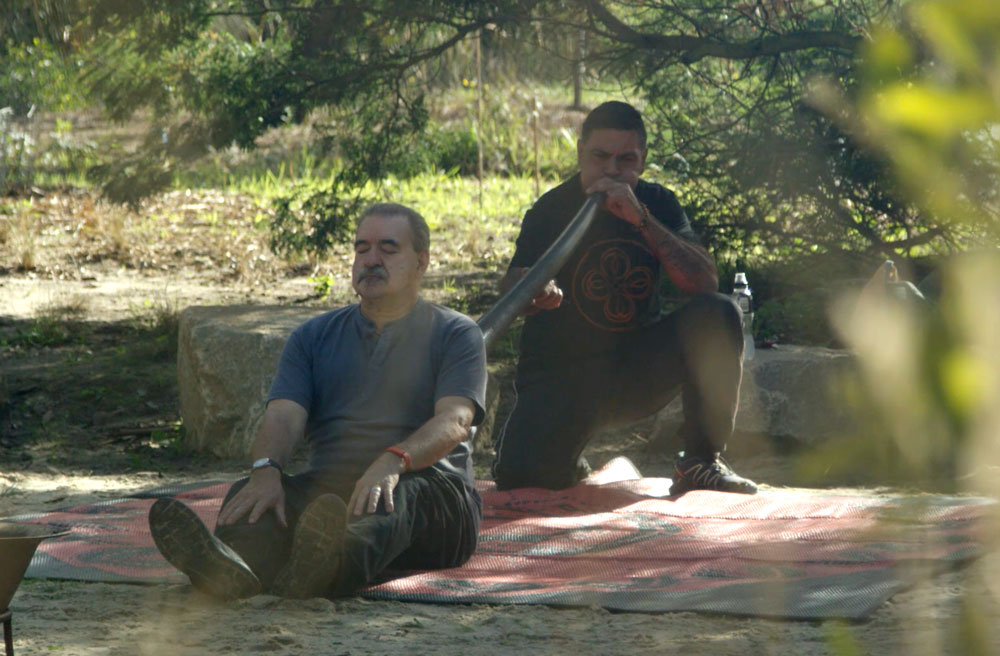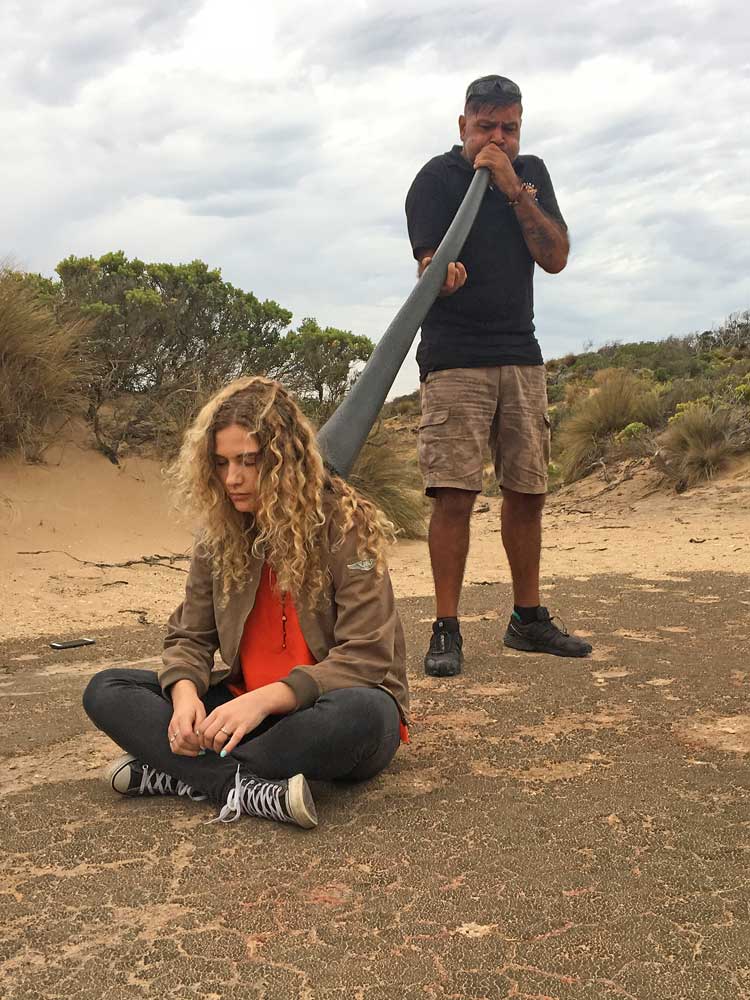YIDAKI (DIDGERIDOO) LED MEDITATION & HEALING
Possibly the world’s oldest known musical instrument, the yidaki was developed by indigenous peoples of northern Australia possibly over 40,000 years ago.
Traditionally played as an accompaniment to ceremonial dancing and singing and for solo or recreational purposes, the Yidaki is a wind instrument that produces low frequency sound that we can hear and actual vibrations that we can feel, especially if the end of the instrument is placed close to the body. The Yidaki can be linked to ‘musica universaiis’ (music of the spheres), an ancient concept that links celestial bodies of sun, moon and planets as a form of music.
Due to its powerful sound vibrations, the yidaki can help listeners enter deep states of relaxation or trance, opening the way for remarkable sound healing that can offer great therapeutic benefits.


Lionel Lauch is a skilled and practiced healer, versed in the ancient aboriginal custom of healing. During Lionel’s sessions you are immersed in the rhythmic primal sounds of the Yidaki as it moves through your muscles and organs, grounding you in the land and moment as the frequencies and vibrations flow through your body, connecting you to the earth and creating a space for powerful healing to take place.
“I teach respect and healing and I help other people, black or white, to get through their problems, as I have experienced a great deal of what life can throw at you”
Living Culture are proud to offer individual holistic Yidaki healing sessions with Lionel, in conjunction with guided meditation. You will be asked if there are specific areas of healing you require during an initial consultation beforehand, and methods and approaches will be adapted to meet your specific needs. Sessions are confidential and there is opportunity for reflection and support through-out your experience.
Lionel does one on one healing sessions that can be booked from list of locations provided by Living Culture, or at your own home on the Mornington Peninsula.
Duration – 1 hour with ½ on top for walking time.



